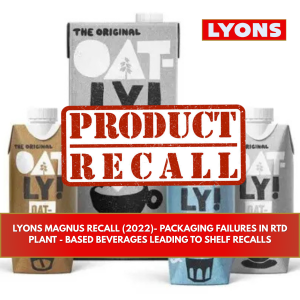Issue Identified
Quality assurance flagged the packaging-related deviations during post-production sterility audits. Third-party microbial testing confirmed the presence of Cronobacter sakazakii and potential Clostridium botulinum, a rare but serious pathogen that could cause life-threatening botulism when present. Although no actual botulinum toxin was found, Class I Recall status was attributed to the failure of certain products to meet commercial sterility standards from the FDA. The product was recalled and customers warned within minutes due to potential health risks. [5]






